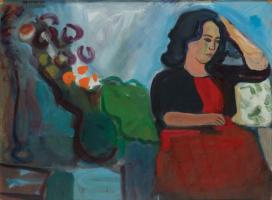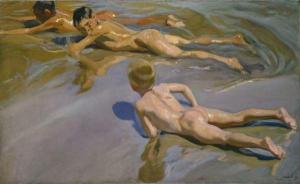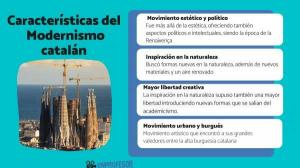Medieval philosophy: main characteristics
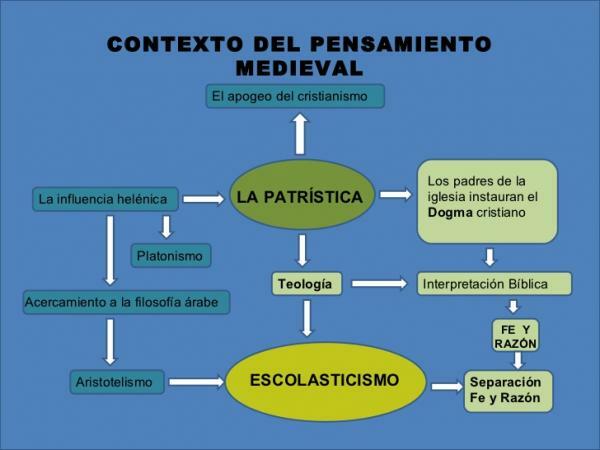
Image: Slideshare
The characteristics of philosophy revolve around the fact that thought in this age does not advance, but rather Plato's thought is reconsidered over and over again (Saint Augustine's interpretation of him) and Aristotle (especially Saint Thomas Aquinas's interpretation of him). In this lesson from a TEACHER we are going to dwell on the main characteristics of medieval philosophy so that you better know the ideological trend that took place during this period of history.
Index
- Medieval thought
- What is Neoplatonism
- What is Aristotelianism
- Saint Thomas of Aquino
- Ockham and the universals
Medieval thought.
Medieval times is the period between the fall of Rome (5th century) and the fall of Constantinople (15th century). In this period there are basically two philosophical periods:
- Neoplatonism (V-XIII centuries)
- And Aristotelianism (13th-15th centuries) determining the main characteristics of Medieval Philosophy
What is Neoplatonism.
Although all of Plato's work was lost, except for a fragment of the book Timaeus, the center of the philosophical universe during most of the Middle Ages was the thought of Plato and the interpretation of his work of Saint Augustine. The most important authors will be John Scot Eríugena and San Anselmo de Canterbury.
John Scot Eríugena affirms the existence of four realities:
- Uncreated, Creative: It is God in the function of creating him, creating the Platonic Ideas.
- Created, Creative: They are the Ideas, created by God, but creators of the sensible world.
- Created, Not Creative: It is the sensible world.
- Uncreated, Uncreative: It is God in the function of Final Cause of the universe.
St. Anselm of Canterbury is the creator of the famous Ontological Argument to prove the existence of God:
All of us, even non-believers, have within us the idea that God is the most perfect being that I can imagine.If this is so, God must exist since, if not, I could imagine another being even more perfect: God himself, but existing.Therefore, it is demonstrated that God, who is the most perfect being that I can imagine, exists.
This argument is an argument a priori, since it is not based on experience, but we use the definition of God as a fundamental element. This argument is very important historically since it will be accepted by Descartes, Hegel and rejected by Saint Thomas Aquinas or Immanuel Kant.
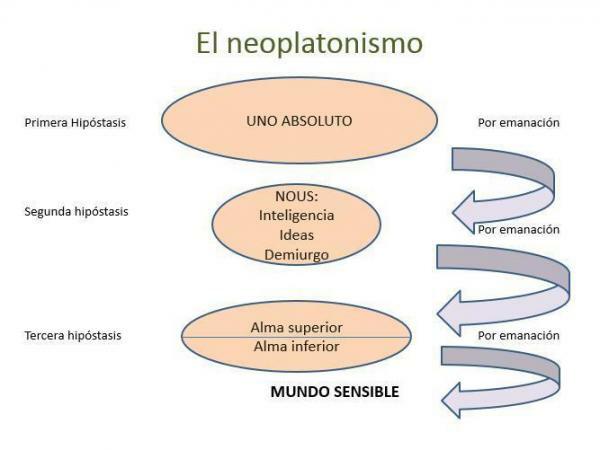
Image: Filo Uni Blogger
What is Aristotelianism.
Islamic culture had preserved the works of Aristotle that had been lost in the early medieval period. The period of peace between Islamists and Christians in the 11th-12th centuries in the Iberian Peninsula will allow the development of the Toledo School of Translators from where will translate the works of Aristotle, from Arabic to Latin and Christian leftovers, from Latin to Arabic.
Aristotle's thought will become the philosophical center thanks to Saint Albert the Great and Saint Thomas Aquinas it will end up becoming the official doctrine of the Catholic Church, as it is still today.
In order to understand the Christian Aristotelian vision, it will be necessary to make a small mention of the Aristotelian doctrine within Islam, especially the work of Averroes.
Averroes will be the most important commentator on Aristotle's work within Islam. His thought has no Platonic connotations and he fully accepts Aristotle's thought. His thought will confront the positions of Islam on three important issues
- The universe is eternal. Aristotle does not affirm the existence of the Demiurge, and therefore the world is not created by God.
- The Soul is not immortal, Only the agent intellect, which is not individual, is immortal.
- There is a double truth, the truth of faith and reason (Religion and Philosophy), which can be perfectly incompatible.

Image: Slideshare
Saint Thomas of Aquino.
Saint Thomas of Aquinohe will be in charge of making compatible, together with his teacher, Saint Albert the Great, the philosophy of Aristotle with Christianity. It will eliminate from his thought the three characteristics of Averroes that made Aristotle incompatible with Christianity:
- God does create the world
- The soul is immortal
- And the truths of faith and reason must match
But the two most important issues in his vision will be the separation between the concepts of essence and existence, and the demonstrations a posteriori of the existence of God.
According to Aristotle's thought, Act and Form coincided in such a way that a universal, by the fact of existing, determined that the object already existed. This determined the existence of objects, of which the concept existed, only by the fact of the existence of the concept, which Saint Thomas Aquinas will deny.
Saint Thomas Aquinas demonstrates the existence of God with five arguments a posteriori, that is, based on the indirect experience of God:
- 1. Way of the Movement: Everything that moves is moved by another. The existence of someone who moves without being moved is necessary: God.
- 2. Path of Causality: Every cause is caused, the existence of a cause that is not caused is necessary: God.
- 3. Route of Contingency: All the objects of the world are contingent, the existence of a being that is necessary to give meaning to the universe is necessary: God.
- 4. Way of the Degrees of Perfection: All objects are more or less perfect. The existence of an absolute perfection is necessary: God.
- 5. Way of the Order of the World: All objects in the Universe, even inanimate ones, follow their function perfectly. The existence of someone who establishes this order is necessary: God.
Ockham and the universals.
In the fourteenth century, a controversy arises that will revolve around the existence or not of universals. Some authors consider that universals have a separate existence in the world of Ideas (Platonic Realism), others will consider that Universals exist, but not in a separate reality (Moderate Realism), while others will consider that universals do not exist (Nominalism), being Guillermo de Ockham one of its highest representativess.
Thus he will deny the existence of the Universals using as a principle the so-called Ockham's Razor (also known as the principle of economy). It is not necessary to multiply beings if there is no need.
In this video of a PROFESSOR we discover the nominalism and realism in the Middle Ages.
If you want to read more articles similar to Medieval philosophy: main characteristics, we recommend that you enter our category of Philosophy.

